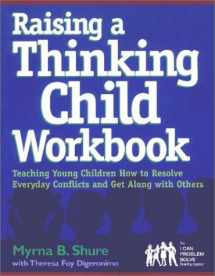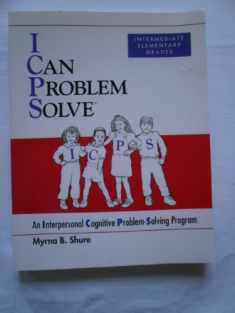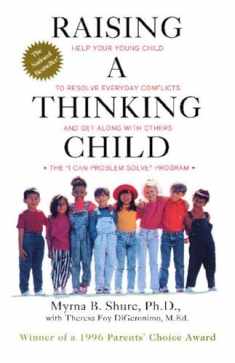
Raising a Thinking Child Workbook: Teaching Young Children How to Resolve Everyday Conflicts and Get Along with Others
Book details
Summary
Description
For parents of children ages 4-7. The Raising a Thinking Child Workbook is based on the highly acclaimed I Can Problem Solve (ICPS) approach for use in schools. The workbook, which is now available in Spanish, stands alone as a practical parenting manual and also serves as the ideal ICPS parent involvement component. Educators can use the workbook with parents to help reinforce ICPS classroom lessons at home. The workbook's pages are packed with dozens of activities that invite parents and children as young as four to play games, to draw, and to color the reproducible illustrations. And while children are having fun, they will also be learning ICPS thinking skills. Children learn how to think, not what to think. They learn to decide on solutions based on consequences. They learn to negotiate for what they want and to cope with the frustration when they can t have what they want. And they learn to understand their own as well as others feelings.


We would LOVE it if you could help us and other readers by reviewing the book
Book review





